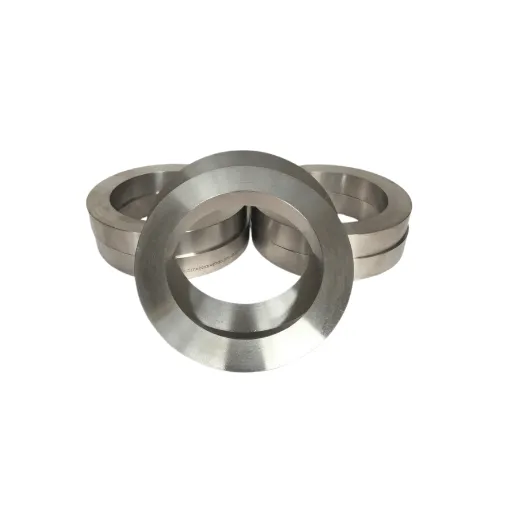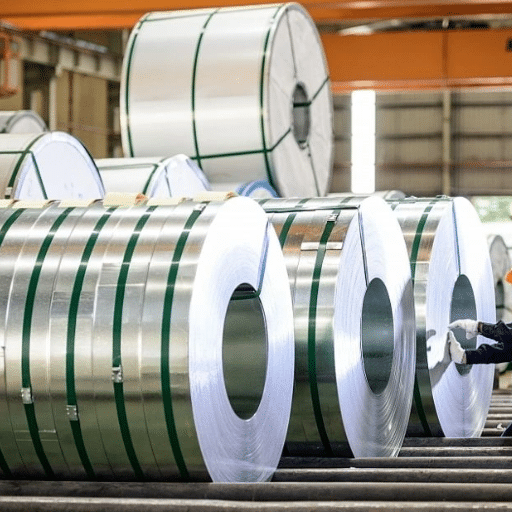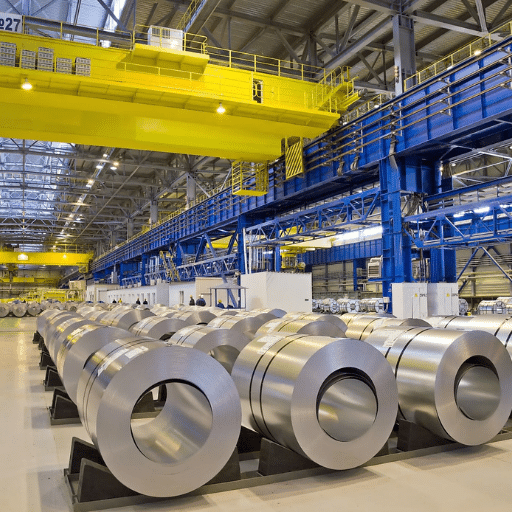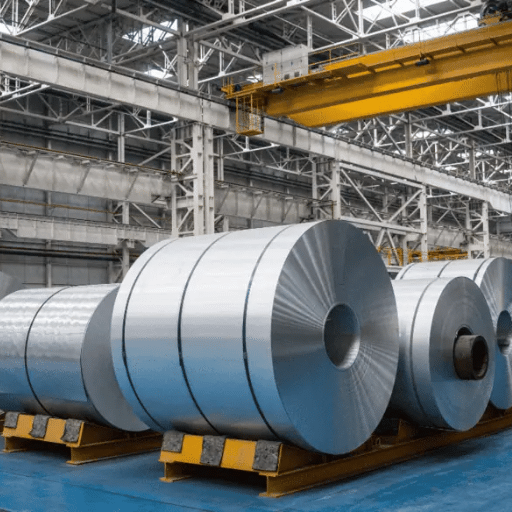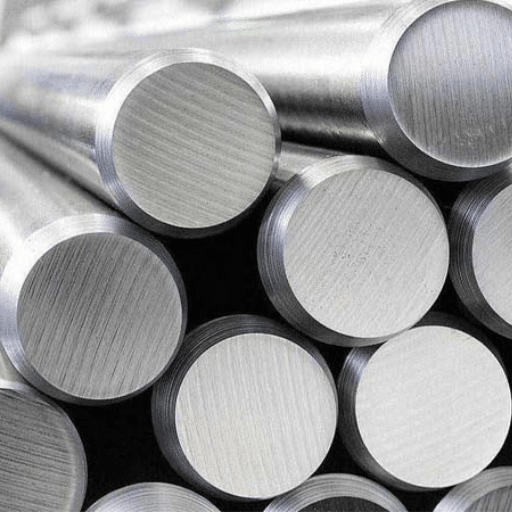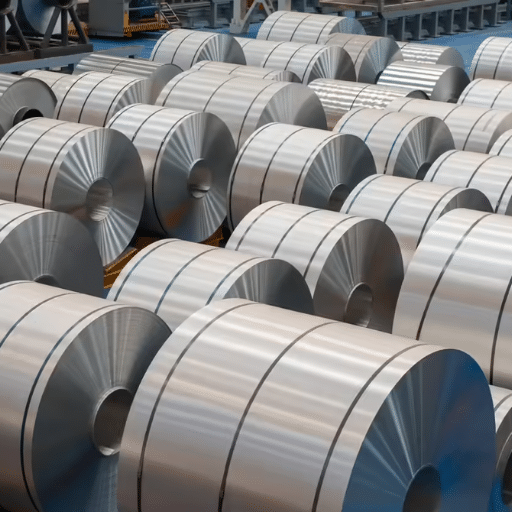Among metals, titanium is widely considered one of the most fascinating and versatile. From aerospace to medical devices, it finds numerous applications due to its extraordinary strength, lightness, and resistance to corrosion. Yet the question that tends to capture interest is whether titanium has any magnetic properties. It may easily be assumed that all metals would somehow interact in a magnetic way, but the reality regarding titanium is quite surprising. We shall take a tour through the magnetic nature of titanium, delve into the reasoning behind it, and consider its implications. So, science geeks, or even just intrigued by metal mysteries, this will cure your curiosity.
Introduction to Titanium and Its Properties
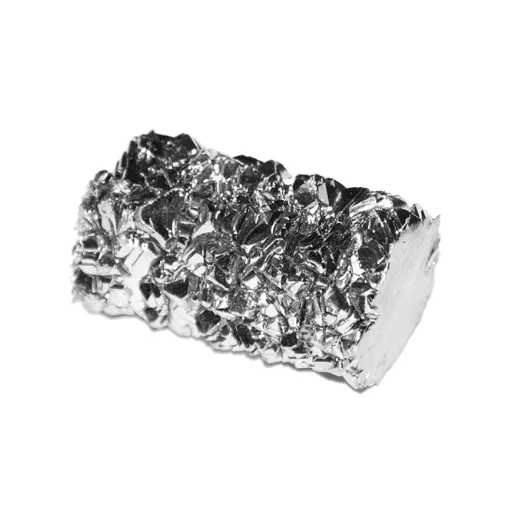
The Fascination with Titanium
Titanium is arguably among the most exceptional metals because it finds applications through its unique properties. The metal is lightweight and yet strong in titanium; it has a higher strength-to-weight ratio than many metals, placing it at the crossroads of aerospace, medical, and automotive industries. Due to its natural corrosion-proof nature, it is well suited to find industrial applications as it faces diverse environments that could involve anything from salty seawater to an acidic atmosphere without any degradation.
Key Insight: Pure titanium is a paramagnetic material, which means that it is very weakly attracted by a magnetic field; it cannot retain any magnetism once the external field is removed. This is because of the atomic structure of titanium; the magnetic moments cannot align with the applied field as they do in ferromagnetic materials such as iron, cobalt, or nickel.
Titanium, being non-magnetic, can be used for medical implants or devices, as it would not interfere with imaging techniques such as MRI. In aerospace, its lightweight strength, in combination with non-magnetic behavior, guarantees the safety and viability of sensitive applications. This unique property along with a host of other astonishing characteristics keeps titanium at the forefront of modern innovation.
Why Understanding Titanium Matters
Understanding titanium matters chiefly because of its implication in varying industries and ability to solve modern-day challenges with its uniqueness. Titanium fulfills the requirement for super strength to weight ratio, corrosion resistance, and biocompatibility; hence, the aerospace, medical, and energy fields rank it among the necessities. These product attributes convenience, meaning the products are heavyweight but durable enough to cause advancement in the arena of performance and security.
💡 Industry Applications
- Aerospace Engineering: Titanium’s lightness and strength make it the perfect material for building fuel-efficient aircraft without compromising structural integrity. Gas turbines can operate at much higher temperatures, making it appropriate for critical components such as engines and airframes.
- Medical Field: Titanium finds uses in implants, prosthetics, and surgical instruments due to its non-toxic and biocompatible nature. The integration of titanium with human bones restricts the risk of rejection and provides for the longevity of implants in human bodies.
- Sustainable Innovation: Titanium’s strength and corrosion resistance extend the service life of products, creating less waste while encouraging green practices. Consider titanium on wind turbines and desalination plants—the titanium therein works against inefficiency in energy and water shortage as a global challenge.
Overview of Titanium’s Unique Characteristics
Almost equal in strength with steels but nearly 45% lighter, titanium is outstanding with the capacity to lessen weight wherever needed. Because of its combination of strength and lightness, titanium finds broad use in aerospace, automotive, and sport equipment industries.
One more unique property distinguishing titanium from other metals is its high corrosion resistance. Titanium is famous for its ability to withstand corrosion. It will not rust if exposed to water, air, or harsh chemicals, unlike many others. This durability promotes its use in creating medical implants, marine equipment, and systems for chemical processing in buildings, thereby extending system life and maintaining product integrity.
In the final aspect, titanium is biocompatible and non-toxic, so it is safe in the medical and dental fields. Since it could integrate well with human tissues without causing any adverse reaction, it is used greatly with surgical implants, prosthetics, orthopedic devices, etc. Hence due to titanium’s durability, resistance, and compatibility, it is considered an important material in many industries.
Physical and Chemical Properties of Titanium
Strength and Lightweight Nature
Titanium is very strong and yet light, which makes it an extremely desirable substance in engineering and industrial applications. Titanium has tensile strengths of anywhere from 434 megapascals to, depending on the particular alloy, upwards of 1,400 megapascals. Titanium is a high-strength material with a lot of opposition to many steels and steels that are very much heavier. The density of titanium is only 4.5 g/cm³, lighter than steel by roughly 60% in weight, which affords an excellent option for any architecture where weight becomes a critical consideration: aerospace vehicles, automotive parts, and advanced sports equipment.
📊 Key Statistics
- Tensile Strength: 434 – 1,400 MPa (depending on alloy)
- Density: 4.5 g/cm³
- Weight Comparison: Approximately 60% lighter than steel
Being lightweight and strong, titanium ensures seamless structural efficiency and saves fuel in the transportation industries. Aerospace applications of titanium include usage in airframe parts, jet engine components, and landing gear. With excellent strength-to-weight ratios, titanium-based components resist extreme forces and temperature conditions while lifting the overall weight minimization of particular design that drastically saves fuel and carbon emission. These factors have additionally supported potential advances toward space exploration, wherein every kilogram matters for the success of the mission.
Additional qualities of titanium are high resistance to fatigue and crack propagation, guaranteeing its reliability in demanding environments over a good number of years. Whenever engineers design structures that need both safety and efficiency, titanium alloys tend to be the choice. The ability of titanium to stand stress coupled with its resistance to corrosion make the metal most suitable for designing high-end systems that require long-term service and innovation beyond the conventional.
Resistance to Corrosion
One of titanium’s qualities that have become almost celebrated is its natural resistance to corrosion, making it a must for an industry demanding durability and reliability in harsh conditions. Unlike most metals that will rust or degrade, titanium has the ability to form a passive oxide layer on its surface upon exposure to oxygen. This thin yet far-reaching patience acts as a protector against any such corrosive agents—chlorides and other very aggressive chemicals. This remarkable property safeguards titanium from corrosion even in cases of severe corrosive environments that involve marine applications and chemical processing.
Titanium corrosion resistance is one of the major applications of its capability in seawater environments. While stainless steels and aluminum may experience pitting and crevice corrosion when faced with conditions of saltwater environment, titanium, in contrast, is highly corrosive resistant and enjoys long life. This characteristic makes titanium a material of choice for making ships, subsea pipelines, and desalination plants. The ability to resist attacks from both high pH and exhausted temperatures keeps the titanium structure stable in aggressive chemical environments, something that might have been achieved by copper alloys or carbon steels had it been possible at all.
Developments in the processing and treatment of titanium have immensely upgraded corrosion resistance. Technologies such as anodizing and advanced coatings enable the manufacturer to customize the material properties for specific industries, thereby improving performance and efficiency. Worldwide industries emphasizing sustainability and cost-effectiveness, the corrosion resistance offered by titanium, makes it a reliable solution and, environmentally friendly too, cutting down repair and replacement requirements. This unique blend of corrosion resistance and versatility continues to preserve titanium’s status as an indispensable element for modern design and engineering challenges.
Titanium Alloys and Their Applications
Titanium alloys find applications in several industries because of their high strength-to-weight ratio, corrosion resistance, and phenomenal heat tolerance. Some of the common uses include aerospace applications wherein titanium alloys serve in aircraft manufacturing such as engine parts, airframes, and landing gear. The alloys are lightweight but very strong and hence facilitate increased fuel efficiency and improved performance of the aircraft.
Titanium alloys are used in medicine for prostheses, implants, and surgical instruments due to their bio-compatibility and resistance to bodily fluids. In the automotive industry, parts made out of titanium are used in high-performance vehicles to keep the weight down while preserving structural integrity. Other than these, a great deal is utilized in marine engineering, chemical processing, and even sporting equipment wherein they apply to titanium alloys—all of which illustrate the versatility and timelessness of technology.
🔬 Innovation Update: Recent developments point to greater usage of titanium alloys in additive manufacturing, with 3D printing producing complex, accurate, and precise parts and expanding possibilities in custom designs and applications. This set of innovations keeps titanium alloys at the forefront of material science developments.
Exploring Titanium’s Magnetic Properties
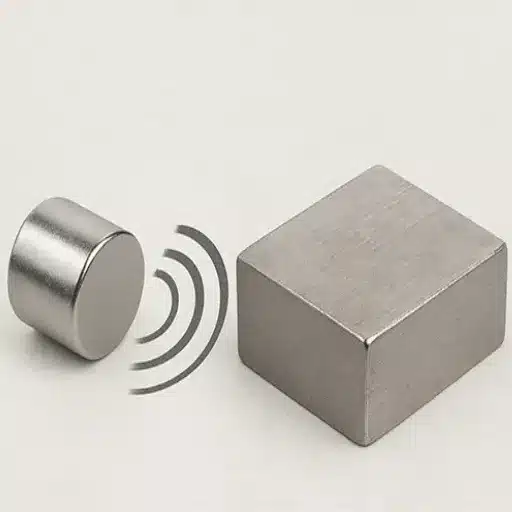
Is Titanium Magnetic? The Answer Explained
Titanium, by its very nature, has been classed as a nonmagnetic material under usual conditions. As a paramagnetic substance, it has a slight exhibition of magnetic properties under the influence of an applied magnetic field but does not retain any magnetism after the field is withdrawn. The presence of this paramagnetic behavior is attributed to the electronic structure of titanium; the very existence of unpaired electrons, in the case of titanium, was not enough to produce significant magnetization.
⚠️ Important Note
Depending upon the composition of an alloy with other elements, its magnetic character might change. To illustrate, some titanium alloys, upon containing minute quantities of the ferromagnetic species, such as iron, show traces of ferromagnetic behavior. These slight varieties make the titanium alloys suitable for applications requiring specific magnetic behavior.
Besides, the non-magnetic property of titanium is even more helpful in industries like medical imaging and aerospace. For example, titanium implants are best for a patient who is about to undergo an MRI scan because the implants won’t interfere with the magnetic fields of the machine. This property is yet another reason why Advanced Engineering and Medical applications consider titanium among the most sought-after materials.
Paramagnetic vs. Ferromagnetic Materials
Paramagnetic materials include magnesium and aluminum and present a weak attraction for magnetic fields, while ferromagnetic substances include iron, nickel, and cobalt.
| Aspect | Paramagnetic | Ferromagnetic |
|---|---|---|
| Examples | Magnesium, Aluminum | Iron, Nickel, Cobalt |
| Attraction | Weak | Strong |
| Retention | No | Yes |
| Electron Spin | Unpaired | Aligned |
| Applications | Research, Alloys | Magnets, Motors |
Interaction of Titanium with Magnetic Fields
Weak magnetic behavior in titanium places it in the paramagnetic category. Magnetic fields, therefore, will rarely affect this metal since it has very little magnetic dipole alignment. The existence of a positive but almost negligible titanium susceptibility suggests weak attraction to magnetic fields. This arises from the few unpaired electrons in titanium that do not produce enough retention of magnetic fields because of their incomplete alignment.
The paramagnetism of titanium can even fade under special circumstances (e.g., low temperatures or in alloyed form). For example, the enhancement of certain magnetic properties in titanium alloys depends on the exact alloy composition. Were it not for a few extraordinary applications exhibiting a need for these properties, titanium and its alloys would never have ventured into aerospace, medical implant, and electronics applications where non-magnetic properties are required so as to not impede sensitive equipment.
Because of this, research continues in areas concerned with titanium’s magnetic behavior while unfolding its potential applications by manipulating its interaction in an environment exposed to a magnetic field.
Applications of Titanium in Various Industries
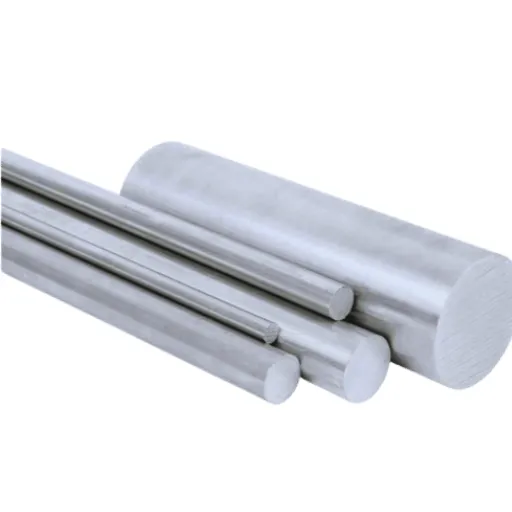
Aerospace: Lightweight Components for Aircraft
Titanium finds application in aerospace domains due to its supremely strength-to-weight ratio, corrosion resistance, and capability to endure very high temperatures. This property makes it apt for essential components within automobile systems of modern aircraft. Below are the 5 major aerospace applications of titanium components:
- Aircraft Frames and Structures
Titanium make-up is utilized for airframe construction, the lightweight properties of titanium lessen the overall weight of an aircraft and hence increase the fuel efficiency while not compromising on structural integrity.
- Jet Engine Components
Applying titanium alloys in jet-engine components like compressor blades, disks, and casings allows them to stand high temperature and stress yet retain strength.
- Landing Gear
Used in landing gear due to its breaking strength and support with minimum weight, titanium provides the advantage of crushing resistance against the landing force.
- Fasteners and Bolts
Being lightweight and corrosion-resistant—the very qualities demanded for high-stress and high-moisture environments—titanium fasteners are considered in aircraft assemblies.
- Hydraulic Systems
Titanium is used for operational hydraulic tube systems in aircraft, standing up against pressure, corrosion, and being lightweight when compared to other materials.
These applications show how titanium forms the heart of modern aerospace engineering, where performance and reliability take precedence above all else but efficiency.
Medical: Titanium in Implants and Surgical Tools
Titanium is touching many branches of modern medicine, applications because of biocompatibility, strength, and corrosion resistance. Being able to co-exist with human tissues without causing any harm makes it ideal for many medical applications. Here are five applications for titanium in medical implants and surgical instruments:
- Orthopedic Implants
Titanium is used widely in the production of joint replacements like hip and knee implants, mainly because of the metal’s lightweight nature and its capability to bear very high loads for long durations without corrosion. The titanium joint implants have been worn for excellent periods exceeding 15 years with the best success rate proven by research.
- Dental Implants
Titanium dental implants function and serve as tooth-root replacements. They adhere to the bone through osseointegration, thus ensuring long-term stability and reduced likelihood of implant failure. Titanium dental implant procedures are successful in over 95 percent of cases.
- Spinal Fixators
Titanium is utilized for spinal rods, plates, and screws to fix deformities of the spine or to stabilize the spine after operative procedures. The ratio of strength by weight acts towards decreasing patient discomfort while affording the necessary support for recovery.
- Craniofacial Reconstruction
Titanium plates and screws are used in reconstructing cranial and facial fractures as well as congenital abnormalities. Its malleability gives surgeons the freedom to mold it for exact fits in complicated procedures, thereby allowing for better healing.
- Surgical Instruments
The best choice for titanium surgical tools, such as instruments, forceps, and scissors, is because they are durable enough, lightweight, and resistant to sterilization techniques. Titanium instruments remain sharp and unaffected by corrosion even after continual use and autoclaving.
These applications show how versatile titanium is and how crucial it is for the evolution of patient care and the improvement of outcomes in many medical procedures.
Consumer Goods: High-End Watches and Sporting Equipment
Titanium is the most sought-after material in the manufacturing of luxury consumer goods, mainly watches and sporting equipment; truly because of the strength, lightness, and corrosion resistance it offers. This unique set of characteristics provides both utility and luxury, thus becoming a choice for premium products. Five examples of titanium applications within this category are as follows:
- Luxury Watches
Titanium can be used in cases and straps for luxury watches to make them durable without excess weight. Brands like Rolex and TAG Heuer use titanium to develop designs that are sleek and comfortable as well as scratch-resistant.
- Bicycle Frames
Titanium bike frames being conversely said to have a high strength-to-weight ratio, provide durability and comfort. Cyclists want titanium because it dampens variations while affording a smoother ride: a feature of their chosen brands like Moots or Lynskey.
- Golf Clubs
With titanium in the making, advanced golf club heads such as drivers have greater strength and larger sweet spots, and yet they are so light. This goes a long way in helping players to generate greater distance and precision in the swing.
- Tennis Rackets
Titanium-reinforced tennis rackets tend to absorb more shocks and generate more power during play. Both professional players and amateurs are attracted to them.
- Camping Equipment
Titanium is common in camping equipment. It is used for making pots, cutleries, and tent stakes. Since it is light in weight and rustproof, it appeals to the outdoor lover that gives paramount importance to utility over bulk.
Titanium gives the utmost versatility and properties that, in return, help consumer-goods manufacturers to innovate more and continue to set higher standards of quality and performance.
Conclusion: The Importance of Titanium
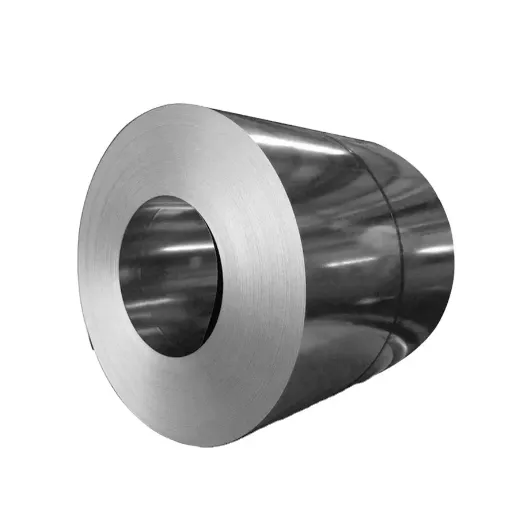
Summary of Key Characteristics
Titanium is a one-of-a-kind highly adaptable material with an exceptional strength-to-weight ratio and corrosion resistance and biocompatibility. Due to the strength requirements of different applications, titanium finds itself used across the entire spectrum from aerospace industries to medical equipment. Sharing with high technology, the extreme heat and corresponding stress wreak havoc on the material, but titanium supposedly stands strong as one of the legendary materials to stand up to violent abuse. Weight being one of its perks allows for an efficient competition in usages.
✓ Key Takeaways
- Titanium is known to resist corrosion, almost like waterproofing such a metal. An instance of titanium application in a corrosive environment would be one exposed to moisture, saltwater, or some stronger chemicals.
- This property is good for marine engineering, medical implants, and industrial machinery that require reliability in use over time.
- Titanium’s biocompatibility ensures its incorporation within human tissues, thereby finding use in prosthetics, orthopedic implants, and dental devices.
Advancements in titanium processing and technology continue to vet better its performance and accessibility. New manufacturing processes, such as additive manufacturing (3D printing), can produce intricate and customized designs using titanium alloys for aerospace and healthcare purposes. Since the industries are gearing towards sustainability, titanium being recyclable with a long lifecycle definitely poses as a solution in curbing waste. Just by blending its unmatched quality with state-of-the-art technology, titanium will remain an engineering and consumer product crucial for shaping the future.
Non-Magnetic Nature and Its Value
Being non-magnetic, titanium is one of those special materials used in applications that demand electromagnetic interference (EMI) to be minimized. Unlike ferrous materials that can acquire magnetism and hamper sensitive equipment, titanium retains its non-magnetic nature over a wide range of temperatures and environmental conditions. In this respect, titanium is significant in the production of medical devices like MRI-compatible implants wherein the presence of magnetic materials can be dangerous to patients and distort imaging results. Hence, the non-magnetic characteristic of titanium comes in handy in marine and aerospace applications comprising components of submarines and satellites requiring resistance against adverse external magnetic fields.
🔧 Practical Applications
- Electronics & Precision Manufacturing: Titanium is commonly used in the casings and enclosures of sensitive electronic components, where interference must not in any way impinge on operational integrity.
- Advanced Sensors: For interior housings of advanced sensors, titanium ensures that signal accuracy is not compromised by the nearness of magnetic materials.
- Miniaturization: The non-magnetism combined with very high strength-to-weight ratio enables making components that are both light and durable without any tradeoff in performance.
Broadly speaking, the titan of titanium is that it is non-magnetic and has superior mechanical properties; hence, it is considered useful in critical environments of relevance to safety. Its functioning in safety-critical applications and the development of more precise and reliable technology could be aided by titanium. Corrosion resistance, biocompatibility, and sustainability aside, titanium remains the primary choice in the world of materials science for addressing holistic engineering problems.
The Versatility of Titanium Across Fields
Almost an entirely malleable material, titanium finds applications in many industries, all owing to the unique properties it has to offer. The high strength-to-weight ratio renders it very critical to the aerospace sector, where lightweight yet strong materials are used to optimize fuel efficiency and ensure structural integrity. The corrosion-resistant quality of titanium ensures growth under harsh conditions, such as seawater or an aggressive chemical environment, giving rise to marine and chemical industries employing it extensively. Its ability to retain its properties even at high temperatures empowers the use of titanium in spacecraft and jet engines, thus further strengthening its positioning as an enabling technology for the development of advanced technologies.
Titanium has found one of its noblest uses in the realm of medicine. For implants, prosthetics, and other surgical instruments, titanium is chosen not only because of its biocompatibility and nontoxic nature; it also integrates very well with human bones and tissues and almost eliminates rejection and failure. The trust surgeons place in it has helped change patient outcomes and spearhead the advancement of modern medicine. It being lightweight yet strong means that titanium implants are durable and really comfortable, putting together a very high quality of life for countless individuals all over the world.
The corrosive resistance property of titanium has been one of the factors sustaining its reputation for sustainability over time. Increasing the corrosion resistance of a metal extends the life of the product made from it, thereby reducing the amount of material in demand and waste-generate rate over the medium or long term. It can be recycled indefinitely without loss of properties, thus fitting perfectly in the circular economy paradigm. Titanium thus supports the engineering process as well as sustainable practices, thereby demonstrating a certain versatility and relevance.
References
- 📚
University of Michigan – Deep Blue Repository
Titanium and Magnetic Separators
This document discusses the magnetic properties of titanium in industrial applications. - 📚
Academia.edu – Titanium Minerals and Electromagnetic Properties
Titanium Minerals and Electromagnetic Properties
This paper explores the unique electrical and magnetic properties of titanium-containing materials. - 📚
Academia.edu – Magnetic Remanence in Titanium Alloys
Magnetic Remanence of Titanium Alloys
This study compares the magnetic remanence of titanium alloys and stainless steel, highlighting titanium’s lower magnetic properties. - 📚
Carnegie Mellon University – Structural and Magnetic Properties
Structural and Magnetic Properties of Fe-Ti-O Compounds
This research focuses on the magnetic properties of titanium in specific chemical compositions. - 📚
Click here to read more.
Frequently Asked Questions (FAQ)
❓ Would titanium be considered magnetic?
Titanium is not magnetic. As a mass diamagnetic material, it has no inherent magnetic properties to speak of. It neither attracts nor repels other magnets when placed in a magnetic field.
❓ What happens when a magnet sticks to titanium?
A magnet will not stick to titanium because titanium is not magnetic. The magnet cannot adhere to titanium even under the influence of strong magnetic fields.
❓ Does titanium show any magnetic characteristics?
Titanium itself is nonmagnetic; however, some magnetic characteristics may develop in extreme conditions. For example, some titanium alloys may behave very weakly magnetically, but this behavior is not characteristic of pure titanium.
❓ What is the crystalline structure of titanium?
Titanium possesses diamagnetic properties because its atoms have their electron shells arranged in a lattice with all electrons paired, thus, there being no unpaired electrons; hence, this type of structure keeps it from being attracted to magnetic fields.
❓ Can Titanium alloys remain non-magnetic?
It is generally correct to say that most titanium alloys are non-magnetic. Just like pure titanium, they retain the non-magnetic properties of titanium except when excessively mixed with some metals.
❓ How does titanium behave in strong magnetic fields?
Titanium, being diamagnetic, does not behave in a traditional way with respect to strong magnetic fields. Titanium does not get attracted by magnetic fields; hence, only a momentary and hardly a noticeable induced magnetic effect takes place, disappearing as soon as the magnetic field is taken away.
❓ What applications does titanium have with respect to the magnetic resonance imaging?
Since it is non-magnetic, titanium is used in areas of medicine, including MRI machines. It prevents magnetic interference, thus enabling the operator to obtain a clean image while ensuring that titanium components do not interfere with the MRI process.
❓ Could titanium dioxide show some magnetic behavior?
Titanium dioxide, in comparison with metallic titanium, could show some magnetic behavior under certain conditions, especially when chemically altered or subjected to certain treatments. This is in contrast with the behavior of pure titanium, which is a non-magnetic one.
❓ Why is it important that titanium is non-magnetic?
Being non-magnetic, titanium is suitable where magnetic interferences may be possible, such as in aerospace, medical devices, and electronic equipment. Its stability from corrosion ensures a perfect fit for such uses.
🌟 Final Thoughts
Titanium’s unique combination of properties—strength, lightness, corrosion resistance, biocompatibility, and non-magnetic nature—makes it an indispensable material across diverse industries. From life-saving medical implants to cutting-edge aerospace technology, titanium continues to push the boundaries of what’s possible in modern engineering and innovation.

